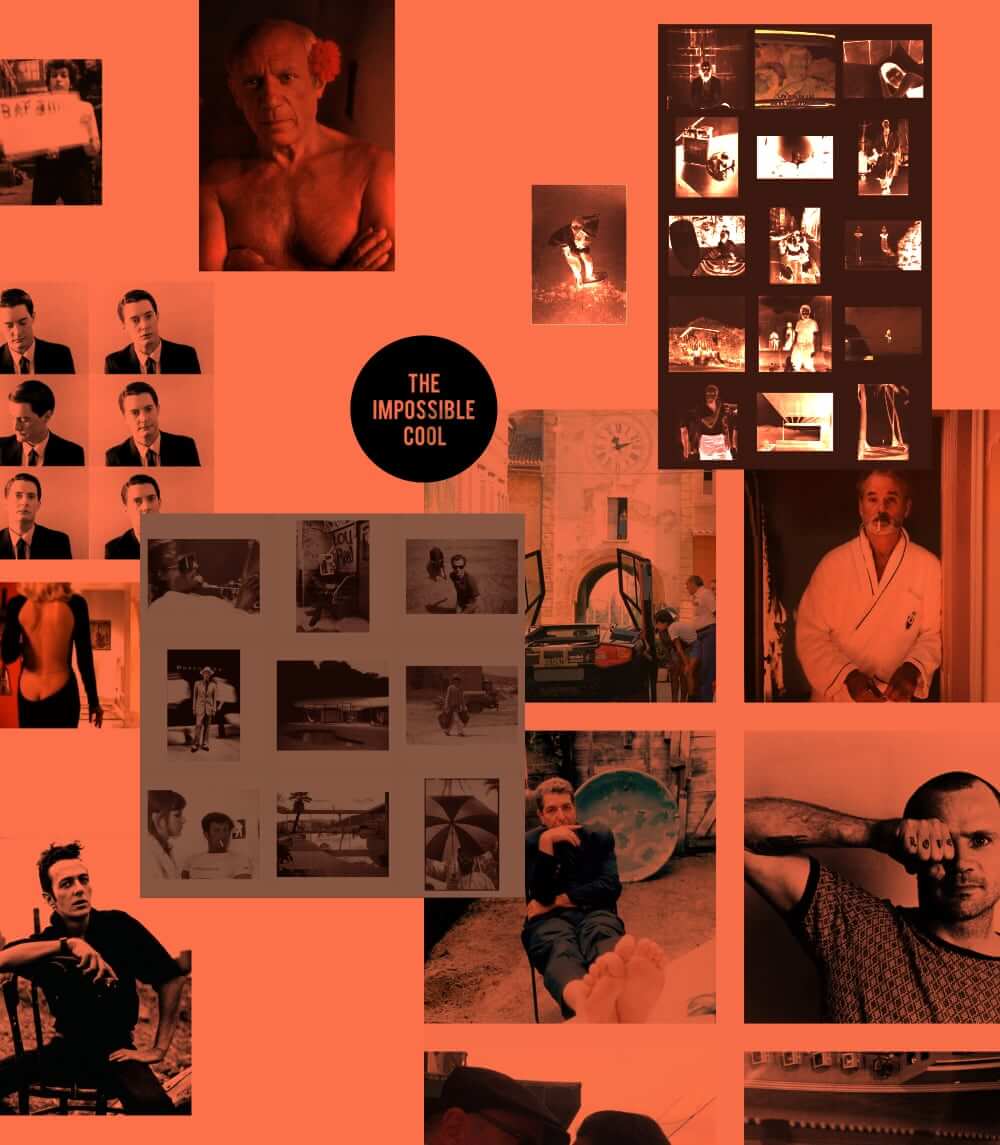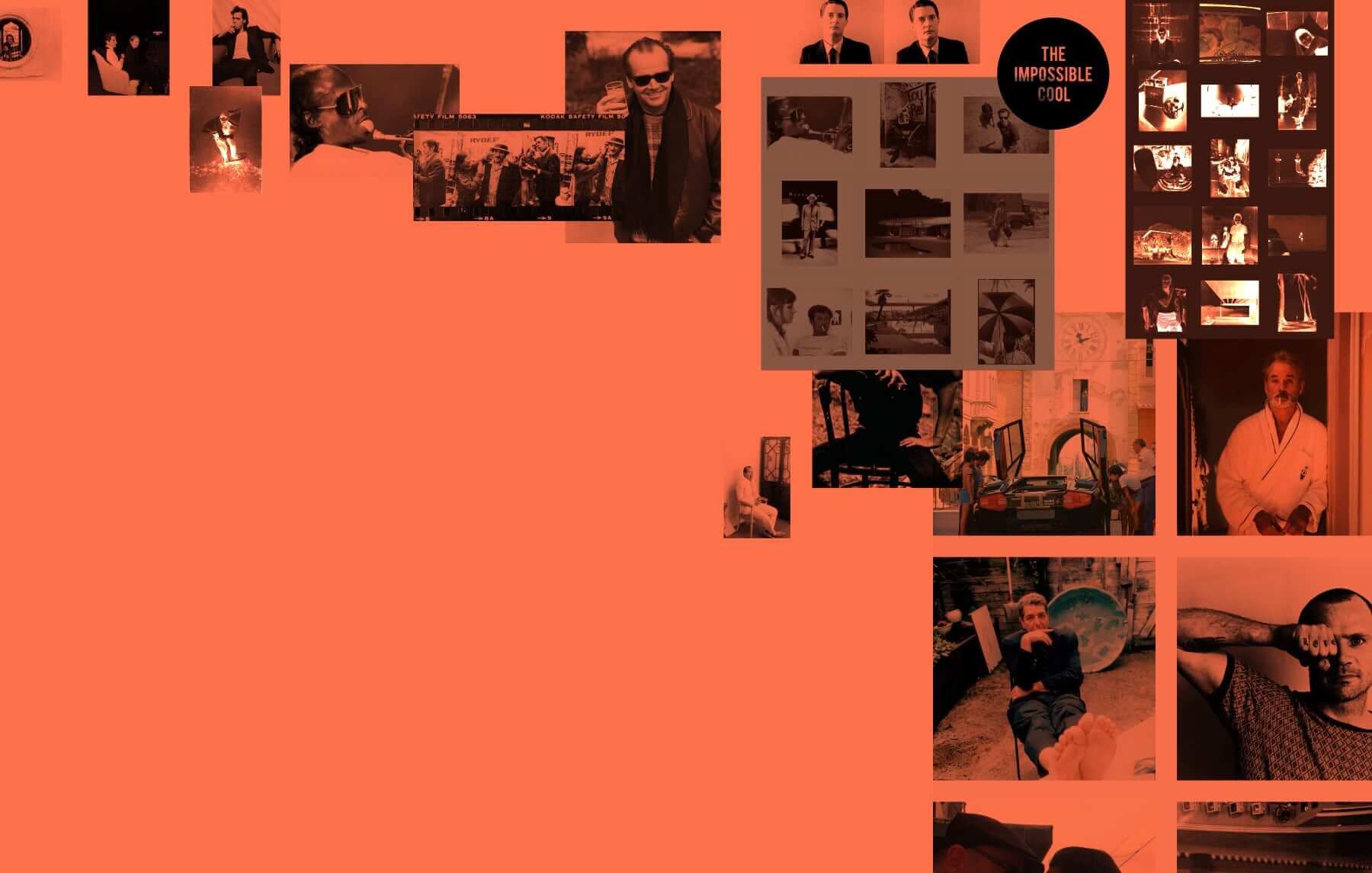“
To be uncool means to reveal something you never would have revealed to a locker room full of guys in your teenage years, something that you feel might revoke your Man Card forever.”


Let your guard down
and see how your life improves

Back in the days when Tumblr ruled the web, my friend Sean ran a daily feed featuring iconic men like Steve McQueen, Miles Davis, Sidney Poitier and James Dean looking effortless and irreverent in front of the camera. He called it The Impossible Cool.
As a twenty-something magazine writer, The Impossible Cool was totally aspirational for me. I spent afternoons in my cubicle fantasizing about how I could make myself into these alluring guys: complete with the cigarettes, the style and the thousand-yard stares.
What it took me a while to figure out, though, is that appearances can be deceiving. The truth is: while these men looked amazing, a lot of them were really unhappy. Many struggled with addiction and more than a handful took their own lives. One needn't look further than the recent example of Anthony Bourdain—one of the most revered cool guys on the planet at the height of his career, to understand that how something looks from the outside isn't the reality at all.
“
To be uncool means to reveal something you never would have revealed to a locker room full of guys in your teenage years, something that you feel might revoke your Man Card forever.”
If you're reading Valet., I'm willing to bet you've wanted to be cool at one time or another, too. We all have. It's a word so deeply ingrained in our DNA that we don't question it. But do a little digging, and you'll uncover that the term originated in the intentional irreverence and nonchalance displayed by American Black men as a response to the societal burden of being, well, black. Put another way: Cool was a defense mechanism. It originated in repression and served as a way of steeling—both internally and externally—against the stresses of a world that wasn't set up in your favor.
Every guy knows the basic tenants of being cool: Keep your shit tight. No radical displays of emotion. Never let 'em see you sweat. I was raised on these. My father, a huge fan of classically suave dudes like Marvin Gaye and Eddie Murphy, would often greet a snot-covered, five-year-old me with lines like: Chill out, sport! Or: It's cool bud—just go with the flow. This programming went deep. By the time I was in my twenties, I was a pro at swallowing my feelings in favor of a smooth facade. I was the proverbial duck—as cool guy Michael Caine once described—“calm on the surface, but always paddling like the dickens underneath.”
Like many of my idols, trying to be cool almost killed me. After years of attempting to drink, work and screw my discomfort away, chronic anxiety, stress and addiction landed me in therapy and men's groups. And it was in those rooms that I saw men being vulnerable for the first time. I'll never forget walking into a 12-step meeting one morning in Los Angeles and seeing a famous man—a man who had most certainly been on Sean's website all those years ago—moved to tears while describing his recent divorce. It was the most uncool thing I'd ever seen, and it lit me up.
James Dean on the set of the movie “Giant” in July 1955 in Marfa, Texas.
(Photo: Richard C. Miller / Donaldson Collection / Getty Images)
Sitting in circles with handsome, successful, aspirational men who were honest about their problems was liberating. It unwound a lifetime of believing something was wrong with me, because I didn't feel calm and collected all the time. And it was in their presence that I began to see that the kind of man I wanted to be wasn't cool and aloof at all—he was warm, kind and present. He left his ego at the door, listened deeply and expressed his feelings passionately.
Having this new ideal of what a man could be didn't make the de-conditioning process any easier though. As I reflected, I noticed I'd spent the majority of my life cultivating an impressive, slick persona, and—as I saw it—that persona had been the reason for my worldly success. It brought up so many scary questions: Would my friends like me if I stopped playing it cool? Would I still be attractive to women? Would I make any money?
Years later, I can say that the simple answer to all of these questions was “yes”. But it's been a little more nuanced than that. When the carefully composed persona we've worked hard to cultivate begins to fall away, and we begin getting more honest with ourselves, a part of us does die. And it can be hard to let it go. I struggled for years to say goodbye to my old life as a New York magazine writer, especially as the uncertainty of what would replace it loomed. At times, I felt powerless and exposed. An old 12-step sponsor of mine, an über successful Los Angeles artist, described shedding his cool self like hitchhiking naked along the 405 freeway with a sign that read: Honk!—one of the best descriptions I've ever heard.
“
When the carefully composed persona we’ve worked hard to cultivate begins to fall away, and we begin getting more honest with ourselves, a part of us does die.”
As more of us become healthy and whole men, though, we do have to be willing to strip down, to release our constraints and get real with our issues. That's when the magic happens. One of the first things we do in my men's groups is to encourage the guys to be as uncool as possible. Every man immediately knows what that means: it means be earnest, honest and vulnerable—it means to reveal something you never would have revealed to a locker room full of guys in your teenage years, something that you feel might revoke your “man card” forever. The looks on new guys' faces are always the same: Are you sure this won't kill me?
But the sacrifice of our egos in a safe space is nothing short of alchemical. And it unlocks a world of possibility and freedom. For my clients, it leads to major life changes like relocations, sabbaticals and surges in creativity. Not to mention the relaxed jaws, fuller breaths and lighter faces of men who are finally able to drop decades worth of physical and emotional armor. Sean had it right all those years ago, cool is impossible, and it takes its toll on our bodies, too. One of my clients looks at least 15 years younger after getting into men's work, a side effect I've noticed amongst guys who find this stuff later in life. Another client left his job in Manhattan and is spending the summer frolicking like a kid in the Colorado mountains. He, too, looks younger by the day.
For me, discovering my true self led to a shift in my priorities and a clarifying of my passions. One of those was becoming a men's coach, where I now get to support other dudes through their own processes of dying to the guy they thought they had to be, and instead becoming the guy they always were. And what could be cooler, err, more gratifying than that? (Old habits die hard.)
You’ve now got a life coach at your disposal. Hit Sean up with any concern you’re currently struggling with: Trouble at work? Relationship worries, family struggles or general mental health concern? Let him help you tackle it each month in this column.
Advertisement
